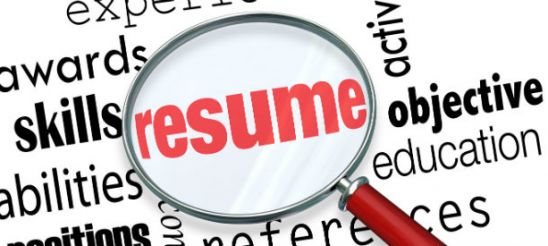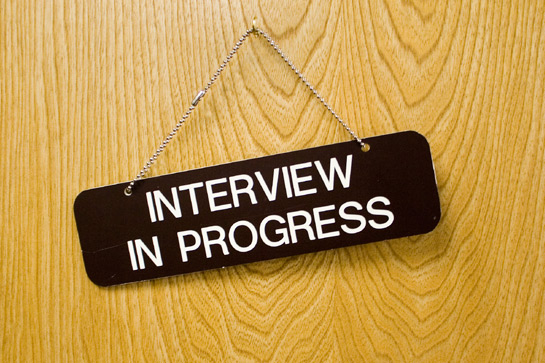To help recent college grads transition from the classroom to the office, here are 10 tips for success.
1. Be open-minded
Try and work with as many different types of people and in as many different situations as possible. Volunteer for interesting projects, introduce yourself to someone new every day and embrace the uncomfortable nature of not knowing everything.
2. Be measured
Make sure you and your manager share the same point of view on success. Your daily priorities should align to with the broader business goals.
Do a weekly check-in to ensure what you do is material to the success of the overall business.
3. Be collaborative
In college you needed to be self-focused. Now it is about the business. The old saying “there is no ‘I’ in team” is 100 percent true. If you cannot collaborate, you will have a hard time being successful, and you are not going to get a lot of fulfillment out of your day. Don’t be a lone wolf.
4. Be patient
Things are going to go wrong. Use these moments in time as opportunities to accelerate the development of your own self-awareness and growth. You can’t run away when something doesn’t go your way. Stay involved and be an embodiment of the change you want to see.
5. Be flexible
Even if you don’t love your first job, do it well and find ways to empower others to do their jobs well. Proving that you can useful and resourceful will make your leaders, co-workers and even other companies want you on their team.
An entry-level job is an opportunity. If you can be good for the business, the business will be good to you. If you can persist and do a job you don’t like well, imagine what you can do when you find your passion.
6. Be resilient
In college, when you fail it’s a sign that you didn’t learn and may not graduate. It is very black and white. In your career you will fail, and when you do, you learn hugely valuable lessons that you can take with you the rest of your working life. Handle your mistakes with grace and turn them into action rather than inaction. Don’t hang your head. Bounce back and take what you have learned and move forward.
7. Be proactive
Some people want things to happen, some people wish things would happen and some people make things happen. Get involved in the business and find ways to be proactive. Utilize your strengths to drive impact, identify areas of weakness where your involvement in certain projects will help you refine your skillset.
8. Be humble
Any great entrepreneur, artist or athlete will tell you that they did not get ascend their career alone. You will need many mentors throughout your career so be open-minded. You will find interesting people you can learn from all over the place.
9. Be curious
Learning never ends. Stay on top of what is happening around you. Follow trends that will help your business, read books that interest you. If you maintain a passion for learning you never feel irrelevant.
10. Be gracious
As you find success, make sure you highlight the “how” over the “what”. It isn’t just about scoring touchdowns and putting points on the board. How you got there is likely the result of work others have done to help you out. Bring people along for the ride and never dismiss the contributions other have made.
To read the full article, click here.
Networking Tips for Introverts
Successful networking can be difficult for anyone, but it’s especially challenging if you’re introverted and shy by nature. Here, experts share networking tips that should make the process easier, if not completely painless.
1. Find your personal networking style
“Don’t pretend to be someone you’re not.” When you’re networking, it can help to be up front and honest about how intimidating the process is, and how it’s difficult to break the ice with new people. Doing so can actually help you break the ice and forge a connection with whomever you’re speaking.
2. Focus on advice, not a specific job
Most professional networking is done in pursuit of a new job, and that fact can make networking awkward. Make sure you’re taking the time to broaden the conversation beyond ‘What job can you give me?’.
Introverts can be great at one-on-one conversations, so take each networking opportunity to develop greater common ground with your connection, beyond looking for a job.
3. Find ways to demonstrate your passion and skills
Introverts don’t often display passion in the ways an extrovert will, so it’s important to find alternative ways to express what excites you professionally, as well as what you’ve accomplished. “Since introverts often excel at one-on-one communication, this can come in the form of telling stories about the kinds of things you have enjoyed in the past.”
“Try and steer the conversation toward talking about your work, what you’ve created, and your accomplishments rather than talking about yourself, and your passion and your love for the work you do will shine through.” Having a professional portfolio also can help give you some concrete examples to point to, and some instant talking points if you’re feeling nervous.
4. Use technology to your advantage
LinkedIn has transformed the way people connect to one another, and it’s a great tool for introverts who struggle with networking in person. While it’s not a substitute for in-person networking, it is a great way to figure out who you need to connect to and why.
5. Recognize it doesn’t have to be perfect
Introverts tend to berate themselves over social situations that an extrovert would never think twice about. That in itself reinforces their squeamishness about networking.
“You should recognize that nothing is ever perfect when dealing with human interactions. Some will go better than others, but merely good meetings are not the enemy of the ideal meeting. Even bad meetings are opportunities to learn.”
Read the full article here.
Resume Tips
A professional looking CV that clearly details your skills and experience will play a major part in whether or not you make it through to the interview stage.
Basic Structure
Ideally your CV will be between 2-3 pages long and include the following sections:
- Personal details
- Education and Qualifications
- Key Skills / Strengths
- Employment History
- Hobbies & Interests
- Referees
Content Tips
- If using a personal email address in the personal details section, ensure that it is of a professional nature.
- Your application should reflect your unique achievements, your particular combination of skills, expertise and experience.
- Customise your CV for each job by focusing on previous experience or skills that are particularly relevant to the advertised role. This can include using similar terminology in your CV to what is used in the ad.
- When listing your employment history, start with your most recent or current role and make sure you include employer names, positions held and primary responsibilities. Ensure you mention precise facts such as “Managed a team of 10 people” or “Increased profit for the business area by 25% between Q1, 2001 and Q4, 2001”.
- Do not leave unexplained gaps in your work experience history. If you have taken time out to go travelling for 6 months this should be clear on your CV.
- When listing your employment history make sure you provide the months as well as the years. Eg. Do not simply list 2001-2003.
- Employers today often make up their mind about an applicant based on the key skills / strengths area so make sure you spend time developing this section.
- Your CV should be an accurate reflection of your skills and experience. If you don’t have the relevant skills to do the job, then don’t apply.
- Include contact details of at least two referees. At least one of these should be from your former employer. If you are a newly qualified graduate than you should list your lecturer as a reference.
- Ensure that you spell check and then proofread your CV thoroughly before submitting it to each role. Just one small typing error could potentially ruin your application.
Formatting
- Use a common program such as Word.
- Ensure there is plenty of white space making it easier for the reader to scan the page.
- Use a standard font size that is easy to read on screen, such as Arial 10 point.
- Keep it simple. The more graphics or design elements you incorporate into your resume, the more likely it is the recipient will have trouble accessing or printing it.
Types of Interviews
You will encounter a number of interview techniques during your job search. Approaches vary according to the nature of the role and the industry.
Behavioural interviews
The interviewer will ask you to describe how you handled various situations in your previous role. The emphasis is on your experience and its relevance to the position for which you are being considered.
Prepare by identifying four or five examples that show how you faced challenges and achieved positive outcomes in your previous role. In each case, describe a specific task or situation that is relevant to the role in question.
Situational interviews
These are very similar to behavioural interviews. The difference is that situational interviews pose hypothetical questions, rather than asking for specific examples of past performance.
Questions are based on the skills and personality traits that are required for the role. Use the job description to identify key responsibilities because the questions are likely to focus on these areas.
Unstructured interviews
This style is conversational and information is gained through a free-flowing discussion. The interviewer does not ask a set of questions in a predetermined order.
You are required to carry the conversation and the topics you discuss generally lead to subsequent questions. Rehearsal is important because the interviewer, although apparently casual, will be looking for details that reveal your skills, personality and cultural fit for the role.
Panel interviews
These consist of multiple interviewers who are usually sourced from different parts of the organisation. Objectives are likely to vary between members of the panel and this will affect the flow of questioning.
Establish eye contact with the member of the panel asking the question and scan the other panel members during your response. Take particular care when answering technical or strategic questions as panel members may have specialist knowledge in these areas.
Psychometric Testing & Assessment Centres
Companies sometimes use psychometric testing and assessment centres to supplement the information gained from traditional interviews.
Psychometric Testing
Psychometric testing is designed to assess your competencies, motivations, career interests and personality traits. The tests are designed to offer an objective and standardised alternative to the frequently subjective and potentially biased process of face-to-face interviews.
Tests are scored in a standardised way and therefore provide a fair comparison between candidates. The psychological information gained is used to judge suitability for the role.
Psychometric tests generally have a time limit so it is important to work through them at a steady pace. If you have difficulty with certain questions be careful not to waste too much time on them – answer the questions you can and return to the others later.
You can prepare for psychometric tests by refreshing your basic skills in maths and comprehension. Buy newspapers and work on crossword puzzles, word games and mathematical teasers. Read passages of text and extract and summarise the key points. Practise arithmetic without touching a calculator. These activities encourage logical and analytical thought – skills you will need when answering questions during the test.
For further information on psychometric testing, conduct research online or speak to an ACBC Careers Advisor.
Assessment Centres
Assessment centres are procedures rather than places. They involve a range of assessments and simulation activities based on the key competencies identified as being essential for the role.
Assessments may include interviews, written tasks and group activities in which candidates are observed interacting in a team environment. It is a comprehensive approach that uses multiple tests and assessors to provide a consensus recommendation against an agreed set of criteria.
Do not adopt a competitive attitude during the assessment. Work effectively with your fellow candidates when participating in group activities, contribute to discussions and demonstrate interpersonal skills.
Interview Advice
You have your brand new qualification and are ready to embark on an exciting new career! Our Career Advisors can help you to prepare for this next exciting step, and we have put together some core advice to assist you.
Step 1 – Do Your Research
Researching the company and the industry in which it operate shows initiative, enthusiasm and a keen interest in the role.
The fastest way to conduct research on a company is online. Start off with the company’s website and then try expanding your search using a search engine. Try to answer the following.
What are the company’s core products and services?
How is the company perceived in the market place?
Find out what you can about the company’s financial situation.
Research the company’s competitors and the industry as a whole.
Try to think like a customer of the company and identify potential improvements.
Step 2 – Preparation
You should ensure you prepare thoroughly so that you are able to talk comfortably about yourself, your experience and how it relates to the role.
Be familiar with your CV and be prepared to answer questions from it. Similarly, ensure you have read any job description thoroughly and think of ways in which your experience will benefit your potential employer.
Prepare yourself in advance for common interview questions. Refer to our interview questions section for some practical examples.
Conduct practice interviews with friends and family until you can comfortably answer each question without hesitation.
Prepare questions to ask the employer. Refer to our Interview questions section for some practical examples.
Find out where the interview will be, obtain clear directions, and confirm the time.
There are some fantastic online tools to help you create a professional resume for free.
Step 3 – The Interview
Make sure your mobile phone is switched off.
Relax and have confidence in your research and preparation.
Greet your interviewer standing, with a firm handshake and a smile! Good body language is vital.
Wait to sit until the interviewer does or until they offer you your chair.
Sit up straight with both feet on the floor.
Speak clearly and confidently.
Try and maintain a comfortable level of eye contact throughout.
Don’t rush to fill in. Silence, think before you speak.
Avoid one word answers.
Show enthusiasm for the role.
Use practical examples to illustrate your skills and show how they suit the role and the company.
Speak with clarity and confidence. Close the interview with a handshake and a genuine thank you.
Make a positive last impression.
Click here for insight on interview types and common interview questions and how to prepare for them.
Step 4 – After the Interview
Write down a short summary of the interview while it is still fresh in your mind. Note the areas in which you feel you went well, as well as any questions you found difficult to answer.
 There is a wealth of information that can be found here but if you still have any questions, please
There is a wealth of information that can be found here but if you still have any questions, please 






